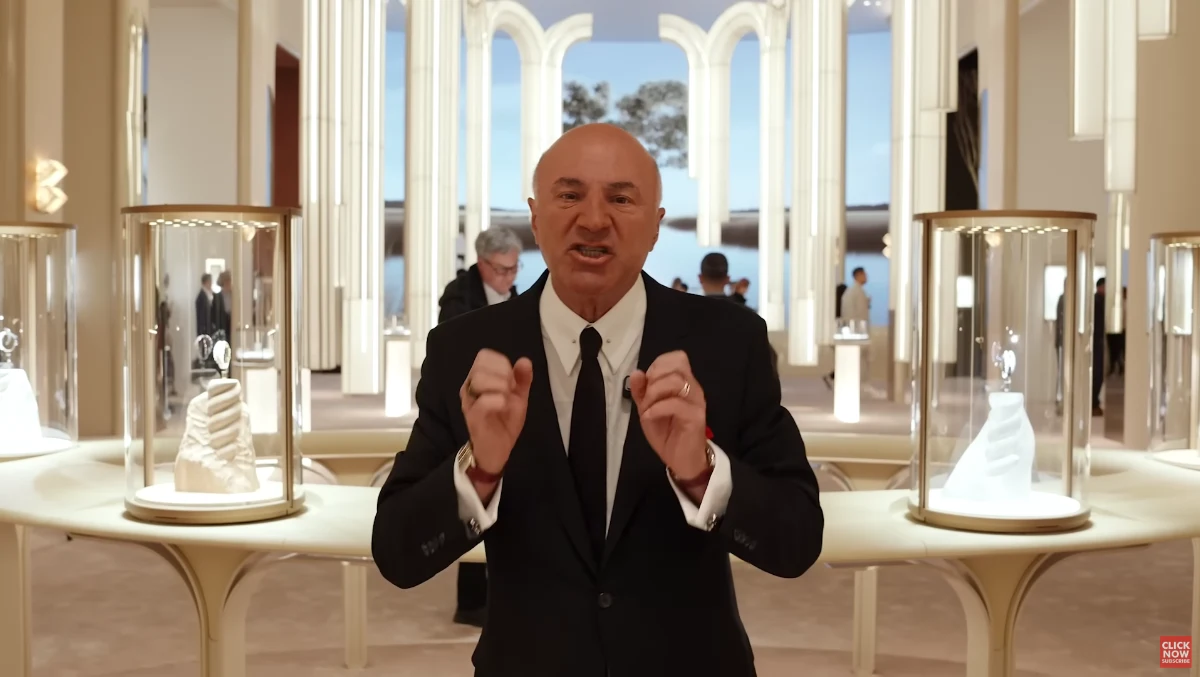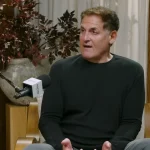
Kevin O’Leary, aka Mr. Wonderful, has become a household name, be it because of his name in the business industry, his biting remarks on the show, or just his demeanor in general. It may also be his guitar playing skills, who knows. But this time, Kevin O’Leary’s advice on how to survive a downsized economy brings him to the limelight.
In September 2025, Kevin said the new tariffs won’t hit consumers as hard as many expect. He explained that shoppers in countries like France, Italy, and Canada already pay around 13 to 15 percent in consumption taxes. The U.S. doesn’t use that system, but American exports still face those taxes once they reach those markets.
As of October 2025, inflation in the U.S. has finally eased after a long stretch of high prices. It’s still a bit above normal, but the Federal Reserve cut rates in September from 4.5% to 4.25%.
Kevin O’Leary on How To Survive a Downsized Economy
But before you take that as a green light to spend more, our beloved Mr. Wonderful from Shark Tank has a warning.
Kevin says, “We’re looking at a downsized America. Three years ago, even 24 months ago, you’d get a mortgage at 4.5%. You’re lucky to get one at 8% today.” The squeeze from higher rates isn’t limited to homebuyers.
Data from Edmunds shows that new car loans averaged around 7% in the third quarter of 2025. This kept financing costs steep for many buyers. O’Leary didn’t sugarcoat it. He said anyone in their early 20s should plan on living with about 20% less than before.
According to economic yardsticks, all of this exposes a major lapse in the financial system. Inflation has cooled from historic highs but remains above normal levels. But prices are still elevated. In October 2025, the U.S. consumer price index rose 2.9% compared to the previous year.
Kevin O’Leary’s Guide to Navigating High Rates and Inflation
There are a few things that can keep your boat almost comfortably afloat in these challenging times. Here’s how to start:
Facing a “Downsized America” Without Panic
The idea of a “downsized America” sounds fairly daunting and scary, especially if this is your first time facing the risk of a recession. But there’s no need to rush into big decisions just yet. A smart starting point is to take a step back and review your finances carefully.
Working with a financial advisor can help you make sense of your options and create a plan that fits your situation. They can guide you on budgeting, saving, and investing so you feel more in control and less stressed about the uncertainty.
Keeping Track of Your Essential Expenses
Another Kevin O’Leary-recommended hack encourages avoiding purchases that involve borrowing. When interest rates are high, it’s wise to cut monthly expenses and focus on paying down debt faster. This also indirectly boosts your savings.
You can often cut the cost of everyday bills like home and auto insurance by comparing what different providers offer. Prices can vary more than you’d expect, even for the same coverage. It pays to shop around instead of assuming every company charges the same.
And home insurance isn’t the only regular cost for homeowners. If you have a car, that adds another monthly bill. With inflation still high, it’s important to track all your essential expenses and make sure you aren’t paying more than necessary.
Using Real Estate to Protect Your Money
O’Leary suggests real estate can serve as a hedge against inflation, offering exposure to the market without direct property management. The landscape has changed from the past, making it possible for everyday investors to enter the market.
You no longer need to be an accredited investor to take advantage of opportunities in property, which opens the door for more people to use real estate as a way to secure their financial future.
By investing at least $25,000, you can access a portfolio of hundreds of owner-occupied homes in major U.S. cities through the U.S. Home Equity Fund. This allows you to benefit from real estate ownership without dealing with the usual challenges of buying, maintaining, or managing property yourself.
O’Leary highlights real estate platforms such as the U.S. Home Equity Fund, which claim to offer returns of 12-18%.
Why Is All This Happening?
When Donald Trump took office, the tone of global trade and business shifted almost overnight. Markets grew uneasy, and policies kept changing on a whim on Twitter (X). People began to follow the headlines and tweets with apprehension.
Around 67% of the population has admitted feeling uneasy about the changing global climate and how those political moves might affect their personal finances, investments, and long-term security.
What was once a sense of steady economic flow quickly turned into a mix of uncertainty and caution, leaving many wondering what might come next.
Prices keep climbing, and trade tensions continue to make everyday goods more expensive. At the same time, AI is being portrayed as the next big job killer, with constant debate over which industries might be hit hardest.
Caution Is The New Competitive Edge
Once you have separated the apples from the oranges, Kevin O’Leary’s message on how to survive a downsized economy is simple and sharp. Play defense before chasing growth. The era of easy money is over, and caution now pays better than risk. Staying liquid, cutting unnecessary debt, and investing wisely are the new financial survival skills.
Playing it steady might just be the smartest investment you make.




















